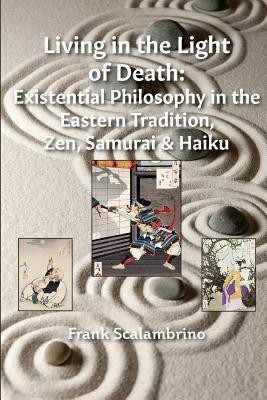
- We will send in 10–14 business days.
- Author: Frank Scalambrino
- Publisher: Magister Ludi Press
- Year: 2017
- Pages: 128
- ISBN-10: 0998870404
- ISBN-13: 9780998870403
- Format: 15.2 x 22.9 x 0.7 cm, minkšti viršeliai
- Language: English
- SAVE -10% with code: EXTRA
Reviews
Description
By developing an Eastern existential understanding of death from the perspective of Zen Buddhism, Bushido (the Way of the Samurai), and Japanese haiku poets, this book articulates an ethics of sincerity between the contemplative-meditation practice of mindfulness and the three Buddhist characteristics of existence: impermanence, suffering, and non-substantiality. Through an examination and discussion of the six perfections of Buddhism, karma and enlightenment, the samurai virtues of Bushido, and the Japanese aesthetic masterfully expressed in the nature, travel, and death poems of haiku poets (a mixture of Zen and mono no aware), readers may gain a deeper appreciation of the death-centered character ethics, or art of living, Scalambrino calls "living in the light of death."
EXTRA 10 % discount with code: EXTRA
The promotion ends in 22d.11:33:11
The discount code is valid when purchasing from 10 €. Discounts do not stack.
- Author: Frank Scalambrino
- Publisher: Magister Ludi Press
- Year: 2017
- Pages: 128
- ISBN-10: 0998870404
- ISBN-13: 9780998870403
- Format: 15.2 x 22.9 x 0.7 cm, minkšti viršeliai
- Language: English English
By developing an Eastern existential understanding of death from the perspective of Zen Buddhism, Bushido (the Way of the Samurai), and Japanese haiku poets, this book articulates an ethics of sincerity between the contemplative-meditation practice of mindfulness and the three Buddhist characteristics of existence: impermanence, suffering, and non-substantiality. Through an examination and discussion of the six perfections of Buddhism, karma and enlightenment, the samurai virtues of Bushido, and the Japanese aesthetic masterfully expressed in the nature, travel, and death poems of haiku poets (a mixture of Zen and mono no aware), readers may gain a deeper appreciation of the death-centered character ethics, or art of living, Scalambrino calls "living in the light of death."


Reviews